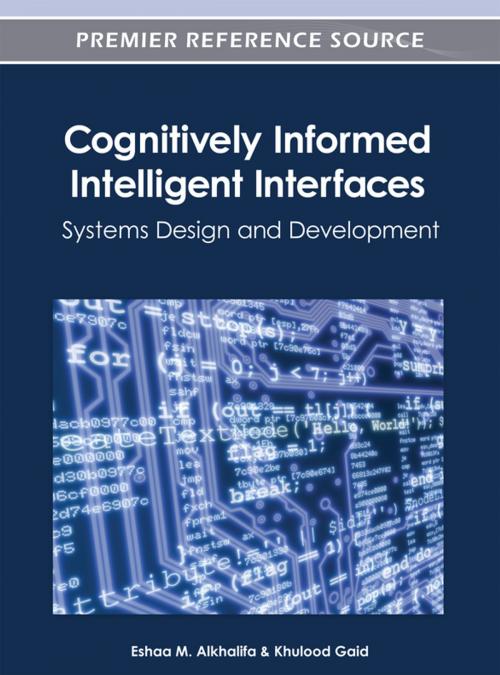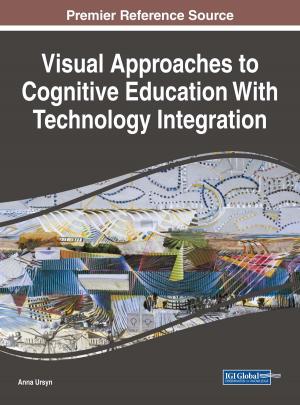Cognitively Informed Intelligent Interfaces
Systems Design and Development
Nonfiction, Computers, Advanced Computing, Theory, Artificial Intelligence, General Computing| Author: | ISBN: | 9781466622913 | |
| Publisher: | IGI Global | Publication: | May 31, 2012 |
| Imprint: | Information Science Reference | Language: | English |
| Author: | |
| ISBN: | 9781466622913 |
| Publisher: | IGI Global |
| Publication: | May 31, 2012 |
| Imprint: | Information Science Reference |
| Language: | English |
Humans interact with the world through perception, reason about what they see with their front part of their brains, and save what they experience in memory. They also, however, have limitations in their sight, hearing, working memory, and reasoning processes. Cognitively Informed Intelligent Interfaces: Systems Design and Development analyzes well-grounded findings and recent insights on human perception and cognitive abilities and how these findings can and should impact the development and design of applications through the use of intelligent interfaces. Many software and systems developers currently address these cognitive issues haphazardly, and this reference will bring together clear and concise information to inform and assist all professionals interested in intelligent interfaces from designers to end users.
Humans interact with the world through perception, reason about what they see with their front part of their brains, and save what they experience in memory. They also, however, have limitations in their sight, hearing, working memory, and reasoning processes. Cognitively Informed Intelligent Interfaces: Systems Design and Development analyzes well-grounded findings and recent insights on human perception and cognitive abilities and how these findings can and should impact the development and design of applications through the use of intelligent interfaces. Many software and systems developers currently address these cognitive issues haphazardly, and this reference will bring together clear and concise information to inform and assist all professionals interested in intelligent interfaces from designers to end users.















